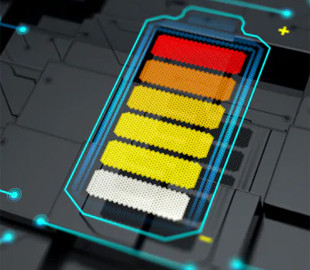Polymer batteries are much cheaper and safer than lithium-ion batteries, and soon they can be produced thanks to the development of a new design .
In China, scientists have developed an all-polymer water battery that has high capacity, flexibility and durability. An article about this research is published in the journal Nature Communications.
Lithium-ion batteries have dominated the field of portable electronics for decades, but their reliance on expensive metals and the presence of flammable or toxic organic electrolytes are a concern. Water-based sodium-ion batteries are considered a promising alternative due to the availability of raw materials and safety. Their widespread application is hindered by the lack of suitable electrode materials, as those currently in use cannot provide good energy storage density and stable operation over multiple charge/discharge cycles.
200% Deposit Bonus up to €3,000 180% First Deposit Bonus up to $20,000Batteries in which the electrodes and electrolytes are made entirely of polymers are excellent for portable electronics due to their ease of processing, intrinsic safety, and durability. In an aqueous environment, polymer electrodes have problems with the oxidation-reduction process, which reduces performance.
Now, scientists have reported the creation of a polymer-water electrolyte that increases the stability of this process by modulating solvation layers and forming a solid electrolyte interphase. The material for the electrode was polyaniline, which can serve as both an anode and a cathode.
The obtained all-polymer aqueous sodium-ion battery with polyaniline as symmetrical electrodes showed a high capacity of 139 mAh/g, energy density of 153 Wh/kg and over 92% retention after 4800 cycles. Spectroscopic characterizations elucidated the hydration structure, solid-electrolyte interphase, and dual-ion doping mechanism.
“Large-scale all-polymer flexible batteries are fabricated with remarkable flexibility and recyclability, heralding a paradigmatic approach to sustainable, portable energy storage,” &mdash ; scientists stated in their article.

